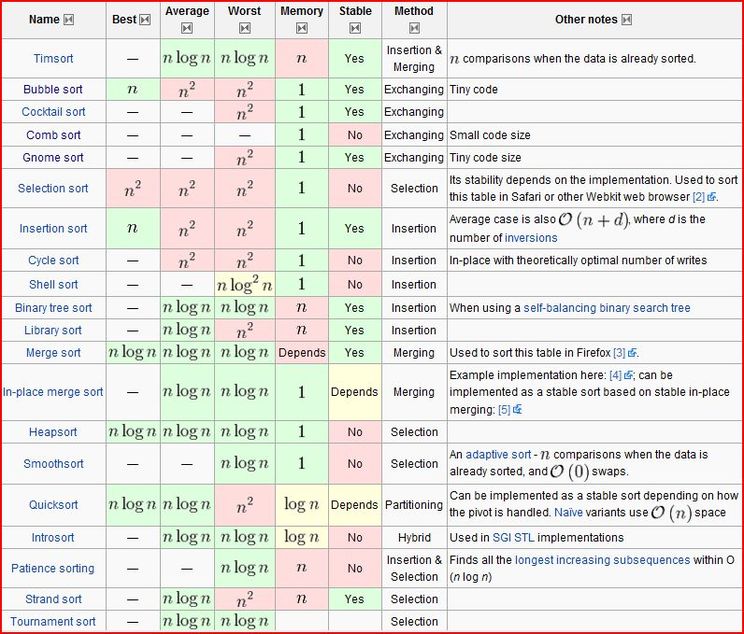public static int[] bucketSort(int[] array, int bucketCount) {
if (bucketCount <= 0) throw new IllegalArgumentException("Invalid bucket count");
if (array.length <= 1) return array;
int high = array[0];
int low = array[0];
for (int i = 1; i < array.length; i++) {
if (array[i] > high) high = array[i];
if (array[i] < low) low = array[i];
}
double interval = ((double)(high - low + 1))/bucketCount;
ArrayList<Integer> buckets[] = new ArrayList[bucketCount];
for (int i = 0; i < bucketCount; i++) {
buckets[i] = new ArrayList();
}
for (int i = 0; i < array.length; i++) {
buckets[(int)((array[i] - low)/interval)].add(array[i]);
}
int pointer = 0;
for (int i = 0; i < buckets.length; i++) {
Collections.sort(buckets[i]);
for (int j = 0; j < buckets[i].size(); j++) {
array[pointer] = buckets[i].get(j);
pointer++;
}
}
return array;
}

